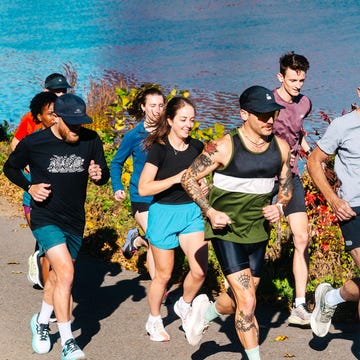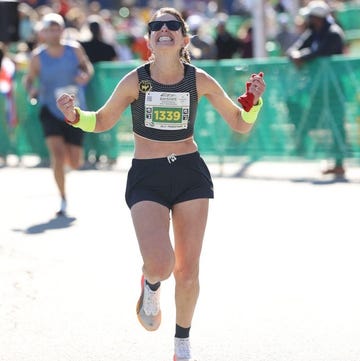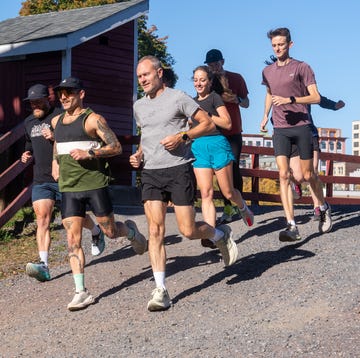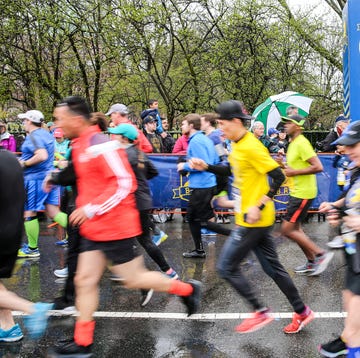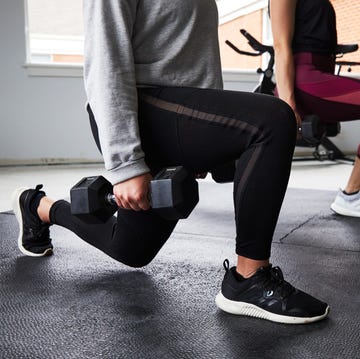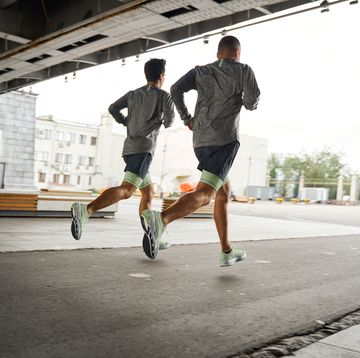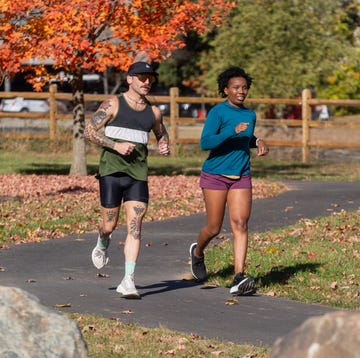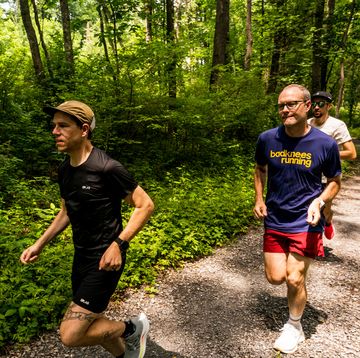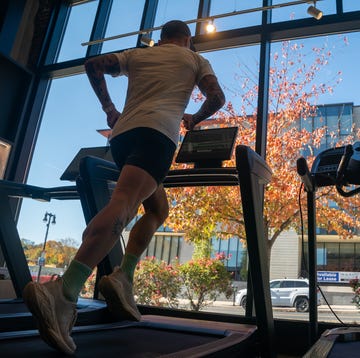Having once run 50 marathons, in 50 states, in 50 consecutive days, I’ve learned a few things about recovery. Chiefly, I think it’s overrated.
Case in point, I didn’t do much by way of recovery during the 50-marathon endeavor (mainly because there wasn’t much time between running and traveling state to state). You’d think that the body would break down over the course of time, but that wasn’t what I observed. Quite the contrary, in fact. The final marathon—NYC—was the fastest of them all, 3:00:30. Not shabby for having just run 49 marathons in the 49 days prior. Rather than deteriorating, my body adapted to the daily load and grew progressively stronger over time.
Recent studies have cast doubt on the merits of conventional recovery techniques, like ice baths, compression, stretching, and message. We know that popping anti-inflammatory meds can disrupt the body’s natural recovery process and potentially pose a health risk if taken in higher doses. It seems to me that if you want to maximize the adaptive changes the body experiences when put under stress, the best advice is to do nothing for post-workout recovery.
This contrarian position might surprise some people as I’ve long advocated many of the recovery practices mentioned above. Such hypocrisy may seem blasphemous, but allow me to clarify. Such recovery techniques can indeed aid the healing process, and should the goal be the ability to simply get out of bed the next morning and head to work, it may seem prudent to sacrifice a bit of long-term gain in order to be able to walk from your car to the office. That’s the tradeoff most people face.
So the choice of how best to recover would appear to be somewhat dependent upon an individual’s circumstances. If you have the luxury of seeking the most pronounced development following a hard training session or race, do nothing. This will allow the body to naturally progress. If you need to operate a motor vehicle the next day, hop in an ice bath, slap on the compression tights, and get a message. Better yet, opt for the telecommuting program. Nothing aids recovery better than an extra hour of sleep and breakfast in bed.
Yours in pain and healing,
Dean



